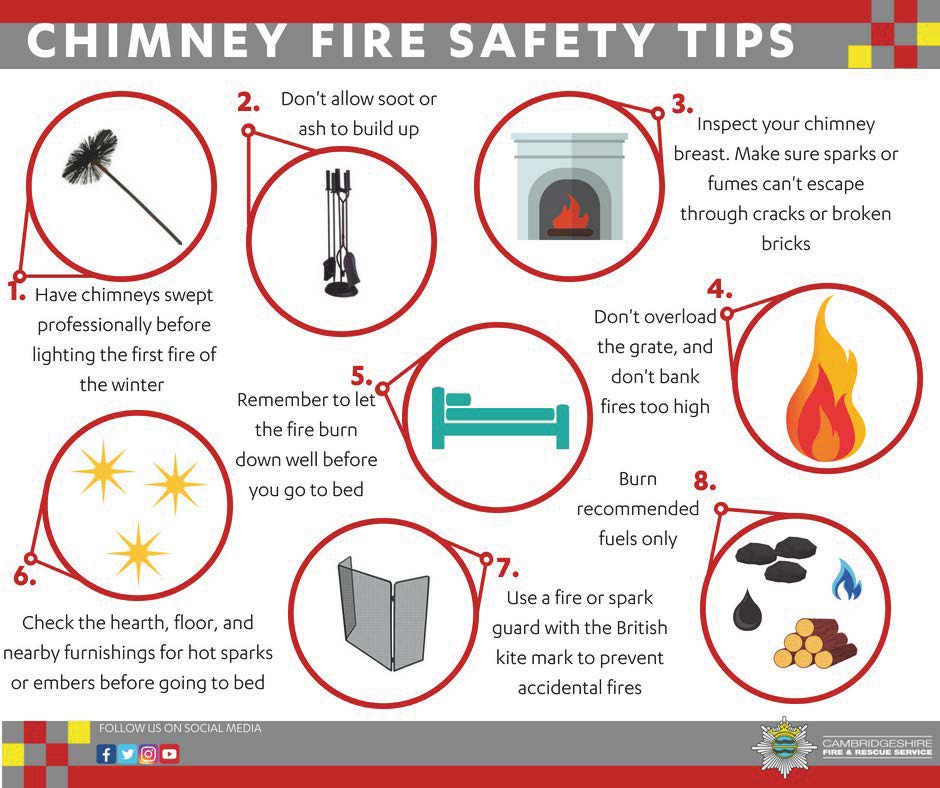Open fires and chimneys

- Have the chimney swept professionally before lighting the first fire of winter
- Don't allow soot or ash to build up
- Inspect your chimney breast, particularly in the roof space. Make sure it is sound and that sparks or fumes can't escape through cracks or broken bricks
- Do not overload the grate or appliance, do not bank fires too high and remember to let them burn down well before you retire to bed
- Check the hearth, floor and furnishings near the fire for hot sparks or embers before you go to bed
- Use a fire or spark guard to prevent accidental fires and make sure it has the kite mark or conforms to a relevant British / European standard
- Do not place objects on or over the mantle-piece which may cause you to stand too close to the fire to reach or use them
- Burn the recommended fuels only - see guidance frequencies below
Regular maintenance requirements of your chimney will depend on the fuel you burn -
- Smokeless coals - at least once a year
- Wood - up to four times a year
- Bituminous coal - twice a year
- Oil - once a year
- Gas - once a year
Ensure you fit a smoke alarm that has the kite mark and conforms to British Standard 5446 (Part 1). Test the smoke alarm at least once a month by pressing the test button and know the life span of your battery - mark your calendar as a reminder to replace it.
